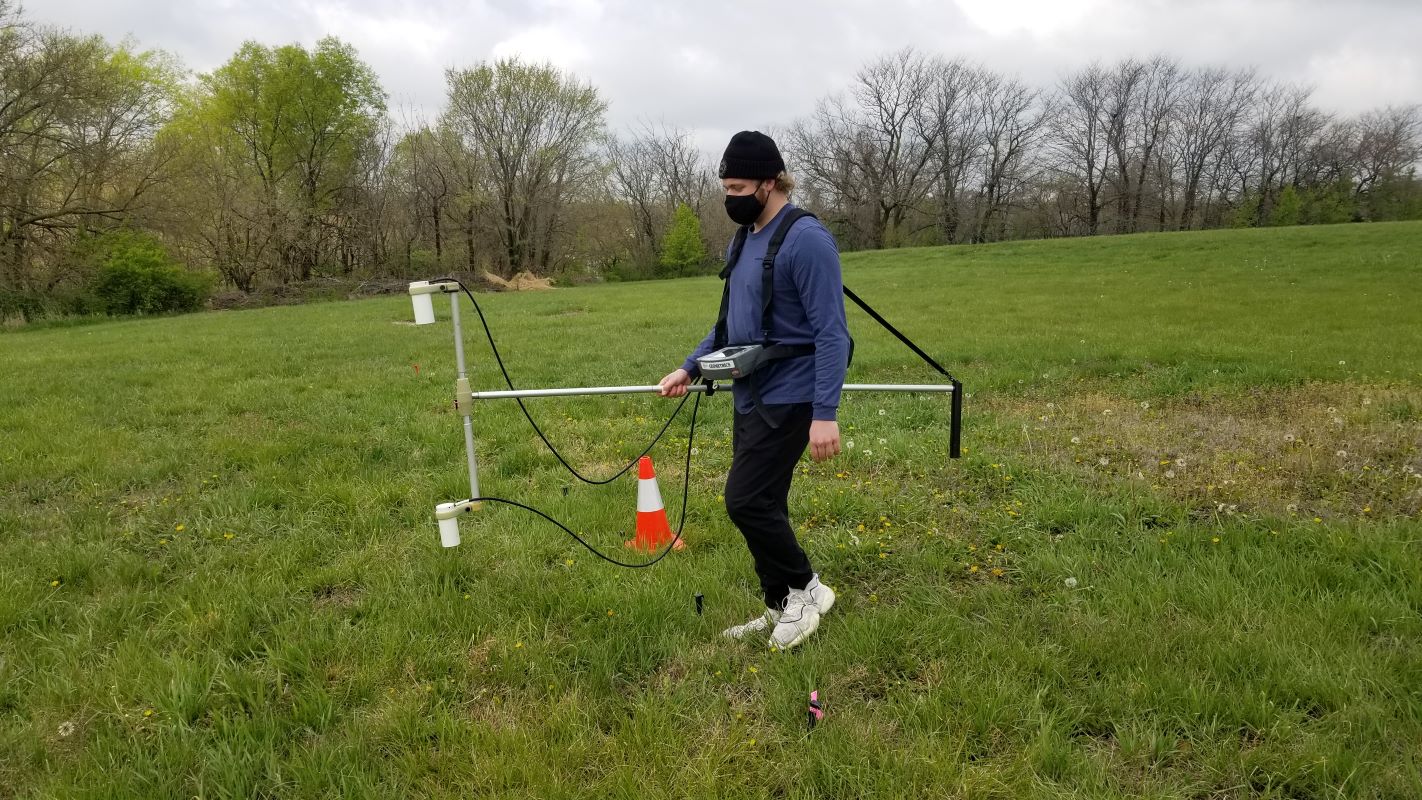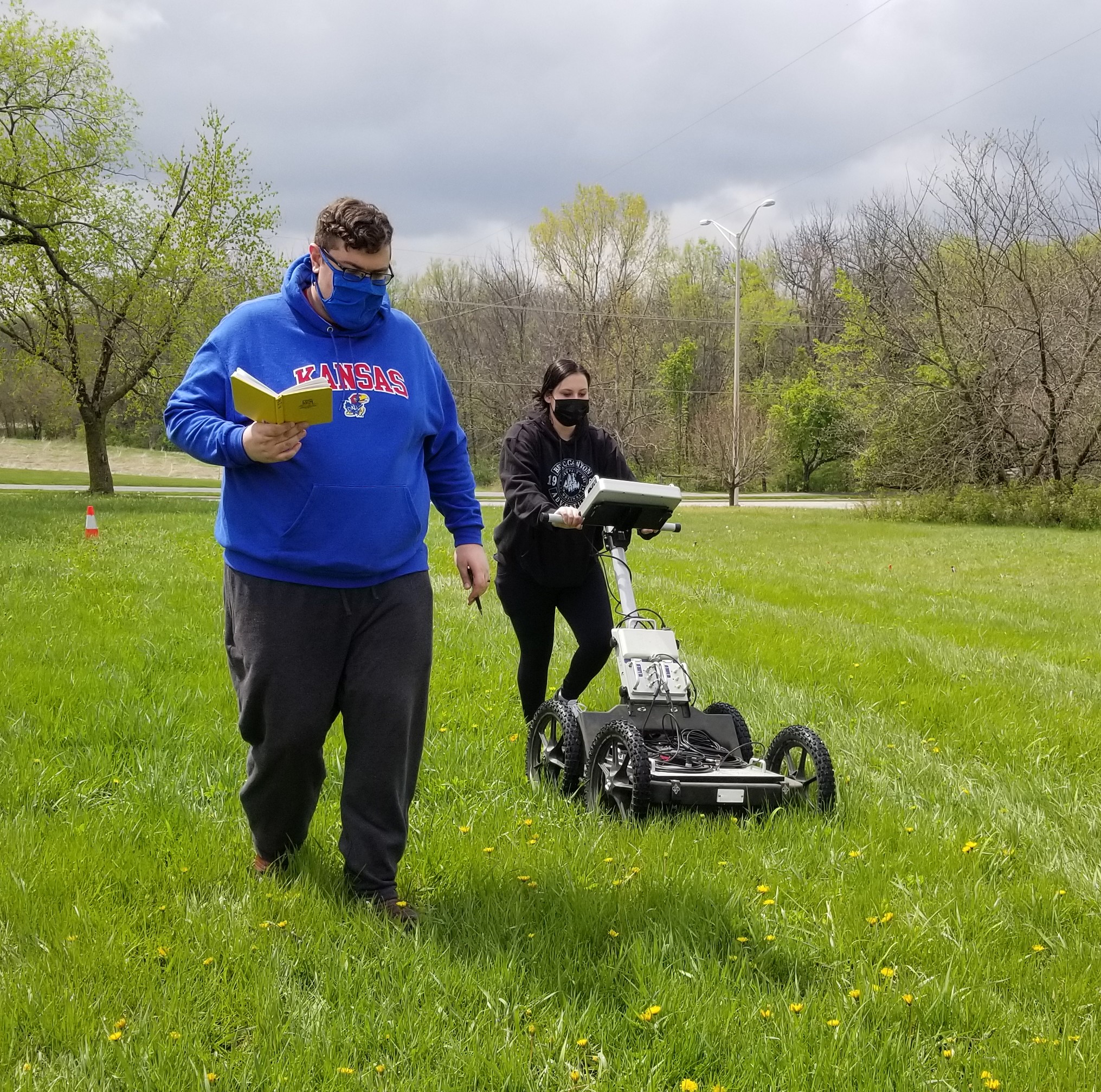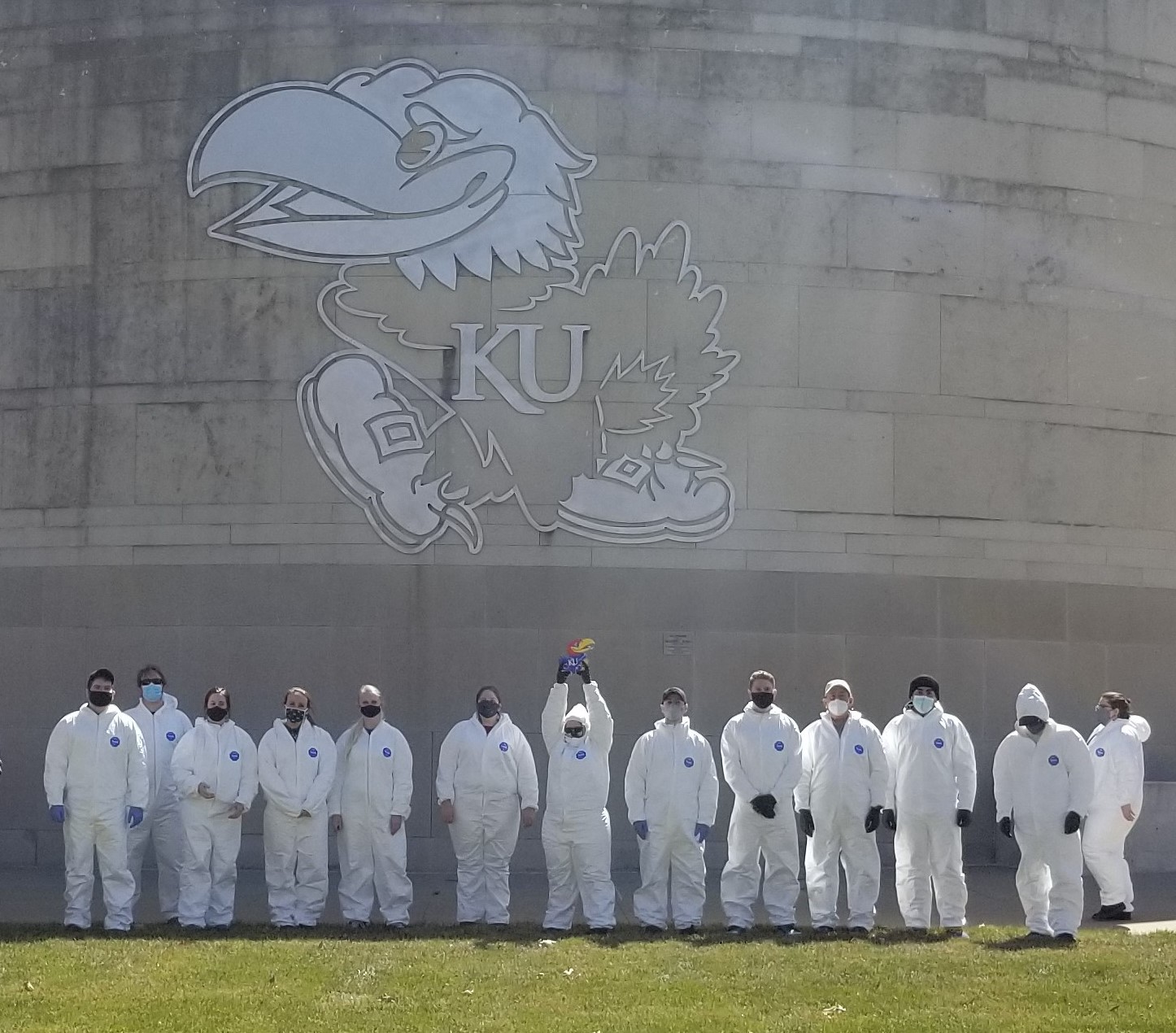Environmental geology professional science master’s combines experiential, online learning to foster student success

Engaging experiential learning opportunities allow students to apply the knowledge they have learned in their courses to real-life scenarios. Though the classes for KU’s Professional Science Master’s in environmental geology are almost entirely online, the program requires three face-to-face workshops where students gain hands-on field experience using professional equipment.
Marcia Schulmeister, professor and director of the environmental geology professional science master’s degree and certificate, joined the KU faculty in 2020 and has witnessed the importance of hands-on learning in students’ ability to get a job after graduation.

“After many years of mentoring geology students, I’ve learned that those with hydrogeology-related field experience have the best interview experiences and quickly find jobs,” Schulmeister said.
KU’s environmental geology program at the KU Edwards Campus is distinct in being a professional science master’s (PSM) rather than a traditional master’s program. While a traditional master’s program would focus solely on geology, PSM programs also include four professional skills courses that uniquely position graduates for careers in business, consulting and management.
As a result of the pandemic, Schulmeister says, the rest of the world is catching on to online degree programs, but the face-to-face workshops still set KU’s program apart from others.
Training opportunities such as the March 20 OSHA 40-hour workshop on hazardous waste operations and management (HAZWOPER), which is required for most hydrogeology jobs, allow students to gain a valuable credential as part of the curriculum. At the workshop, students suited up in Tyvek protective clothing and examined mock contaminants for their potential danger.

In other workshops this spring, Schulmeister and her students conducted a geophysical survey of a property on the Edwards Campus, using ground penetrating radar (GPR) and used direct-push soil and aquifer characterization methods to identify buried objects and geologic and hydrogeologic conditions in the subsurface. The ability of these methods to distinguish underground features, such as foundations, wells and cisterns, and to identify vertical variations in layers of rock and sediments can help predict the fate and movement of possible environmental contaminants. During the all-day workshops, students set up field equipment and ran various monitoring devices. Both workshops were conducted as part of a collaboration with the Kansas Geological Survey.
“Geophysical and vertical sampling methods allow for the identification of objects and geologic conditions below ground without a need for digging,” Schulmeister explained. “Both approaches can provide the rapid access to data that are essential to environmental site management.”
When weather permits, Schulmeister also plans to have her hydrogeology students practice kite aerial photography. This method of photography, used for surveillance, can be used to locate the position of water sources. During the workshop, students will examine the aerial photos to identify springs and determine where the springs discharge into Indian Creek.
Schulmeister works to ensure her curriculum accommodates the program’s diverse students, including traditional graduate students and middle-career professionals seeking a new career path.
“Geologists who are currently employed and seek leadership roles in their environmental companies benefit from our professional skills courses. Others are drawn to graduate-level courses such as geophysics and geochemistry that they would not have taken as undergrads but may help them advance in their professional career,” Schulmeister said.
Schulmeister approximates that a third of the students come from the oil or gas industry and are retooling for a career in environmental geology. Matt Neal is one such student. After 10 years in the petroleum industry, his desire to complete a professional science master's degree in environmental geology was prompted by a desire to help petroleum companies clean up oil spills and reduce air pollution.
“I am hoping the knowledge gained in the PSM program can help create a segue into different opportunities to help the petroleum industry become more environmentally aware,” said Neal. “The professional courses alongside the environmental knowledge will help me to bring possible solutions to company personnel more effectively.”

For Neal, KU’s hands-on workshops not only complement the online learning, but facilitate a stronger connection between students in the program.
“The first workshop I attended was the 40-hour HAZWOPER workshop, and one of the best parts was being able to meet other people with similar goals in the same or similar online programs,” Neal said.
Because much of the program is online, it draws students from across the nation and is expanding quickly. These students must travel to campus to complete their three workshops, which can be scheduled within the same weekend.
“We’re growing and are attracting excellent students,” Schulmeister said. “We’ve doubled the number of students in the program since July. I can’t wait to see what lies ahead for this program.”
Top photo: Alex Walker uses geophysical methods to look at lateral variations in soil properties, and for the presence of buried objects such as foundations or tanks, during a workshop at the KU Edwards Campus on April 16.
The Professional Science Master’s degree program is supported by the Johnson County Education Research Triangle.





